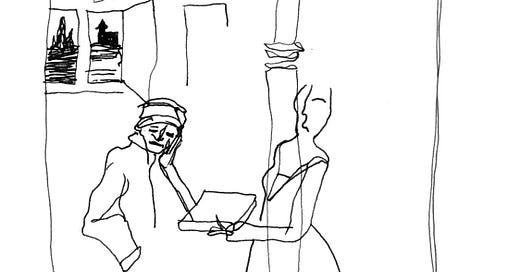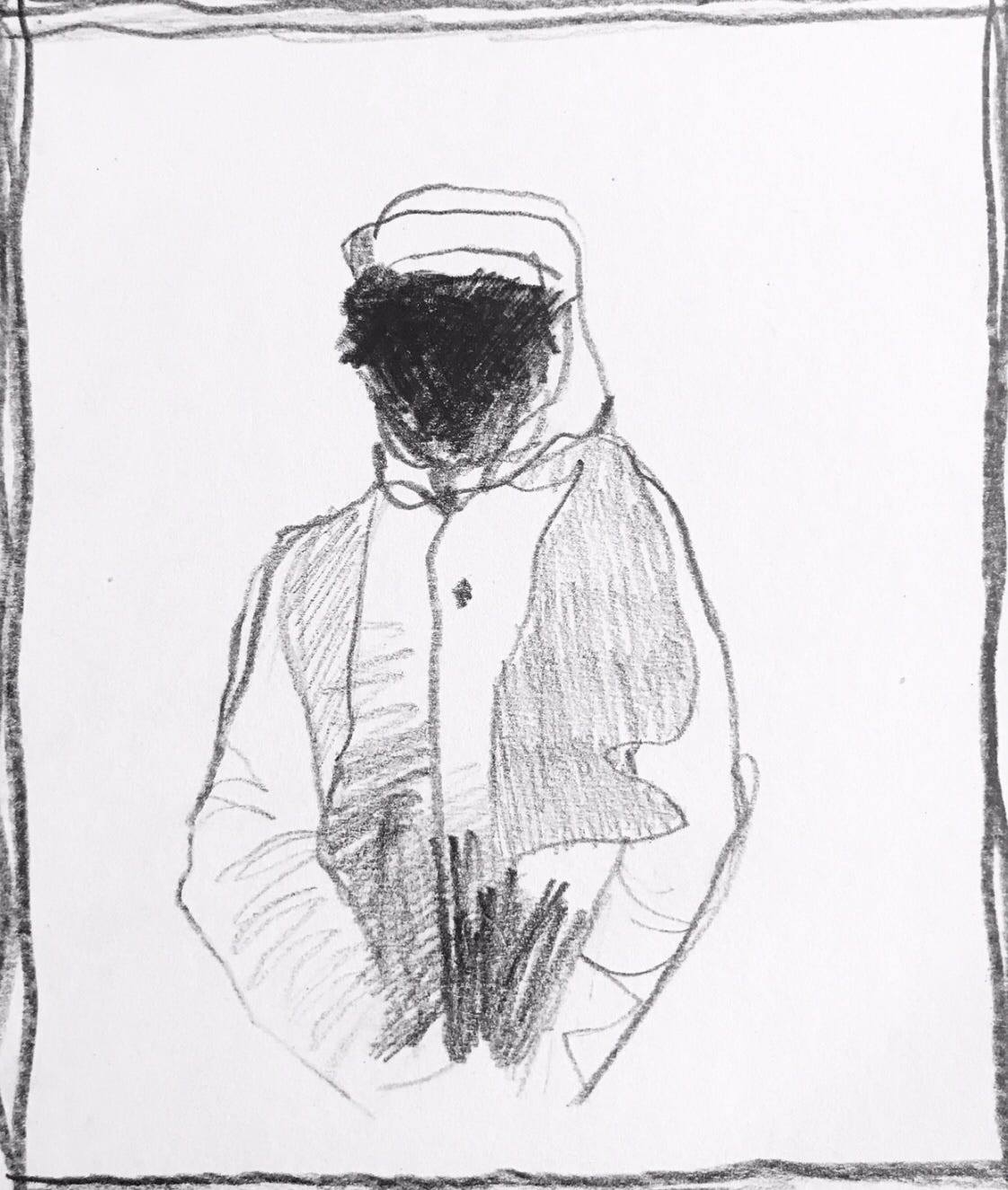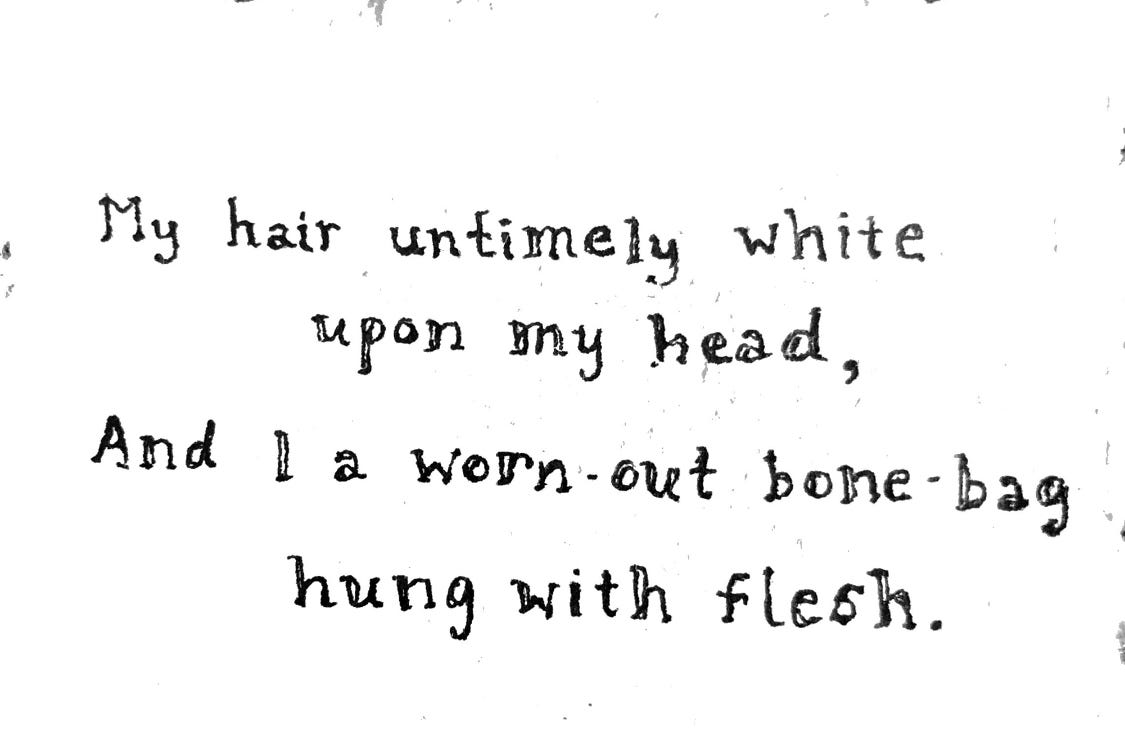Boethius retained his eloquence, stylistic perfection, and flawless command of Greek—by his time in the late Roman Empire verging on collapse as rare a skill as it is now—while in prison on amped up charges of conspiracy and sacrilege, and with the knowledge that he was soon to be executed. Instead of giving into fear, self-pitying rage, or utter dejection, he writes a book: Consolatio Philosophiae, or The Consolation of Philosophy.
Our Roman had further cause for resentment. He didn’t even want to become a politician. “His decision to enter real politics,” writes Victor Watts in an illuminating introduction to his translation, “was dictated by a sense of duty rather than a desire for fame.”
He would have preferred a monastic life of study immersed in the ancient authors whom he cites with regularity, and purely from memory, bookless as he is in exile. The quoted lines from Homer, Herodotus, and Horace (to name just a few) have added significance because we know he memorized them.
Boethius was born into a Christian family, and while his faith is not the focus of his treatise, it is perceptible. However, his classical training had left him with a profound knowledge of the pagan philosophers Plato, Zeno, and Aristotle. But the question of conflicting theologies is not interesting to Boethius.
In The Discarded Image, an enchiridion on medieval and renaissance literature, C.S. Lewis ventriloquizes Boethius: “Did you not read my title? I wrote philosophically, not religiously, because I had chosen the consolations of philosophy not those of religion as my subject. You might as well ask why a book on arithmetic does not use geometrical methods.” (A solid burn from our acerbic friend Clive Staples!)
But aside from the scholarly difficulties and interests Boethius presents, I think young people today have some cause to read him. He is sane in a way none of our politicians, friends, even parents, are likely to be. He presents a model for concrete meditation. In a situation where we would expect his predominant feelings to be dread, fear, and indignation, he is not only able to think reflectively about his thoughts, but he is able to write about them eloquently. To acknowledge and then move away from damaging, poisonous thoughts is the great goal of meditation.
So, a teenager’s takeaways from reading Boethius this week:
1. The John Mulaney Lesson: “‘Speak out and hide it not within,’” Boethius’s Lady Philosophy says, quoting Homer’s Iliad (I. 363). “‘If you want the doctor’s help,’” she continues, “‘you must reveal the wound.’” That is, don’t think no one will understand your troubles. They have no chance of helping you if they don’t know what the problem is. “The plan with Irish people,” John Mulaney says, “is like ‘I'll keep all my emotions right here...and then one day I'll die.’” As Mulaney jokes, not a healthy way to live.
2. The College Admissions Process Lesson: “‘If you do not consider that you have been lucky because your onetime reasons for rejoicing have passed away, you cannot now think of yourself as in misery, because the very things that seem miserable are also passing away.’” By the tenth application it’s hard to see the light at the end of the tunnel. But, as Lady Philosophy reminds us, these miserable things too are passing away! Everything is transitory.
3. The Deep Springs Lesson: All the luckiest men are over-sensitive. “‘They have never experienced adversity and so unless everything obeys their slightest whim they are prostrated by every minor upset, so trifling are the things that can detract from the complete happiness of a man at the summit of fortune.’” Oddly enough, I had already come to this conclusion myself, O Philosophia! I’ve come to see that too much comfort (too little discomfort) is pernicious. I find Deep Springs College so appealing precisely because on a working cattle ranch in Death Valley you can’t afford to be incapacitated by little annoyances. The constant practice of minor discomfort equips students with a certain Boethian equanimity.






